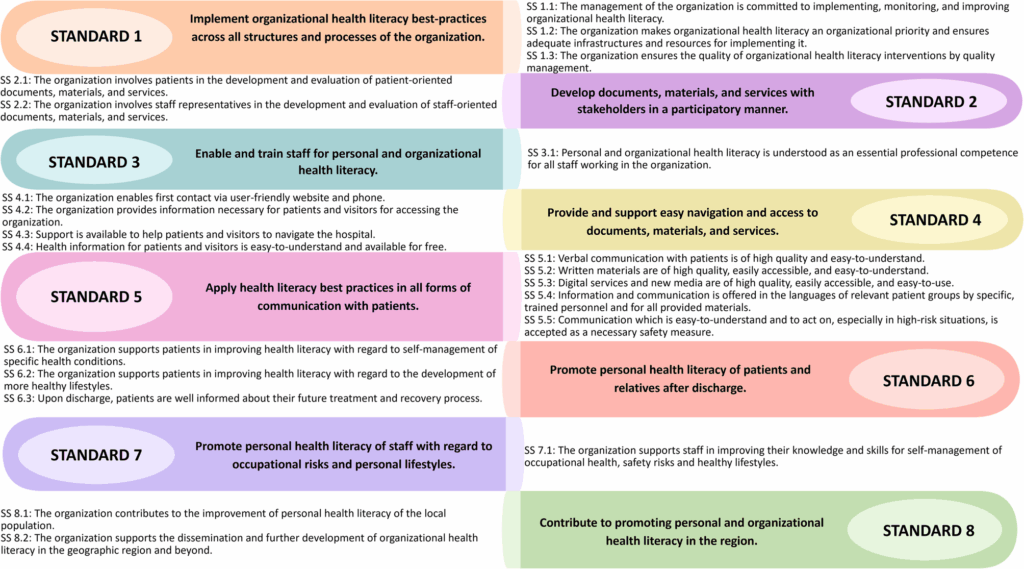
The increasing recognition of health literacy (HL) as a critical component of effective healthcare delivery has spurred the development of tools and frameworks to enhance organizational health literacy (OHL). A recent feasibility study conducted across six European countries has explored the potential of the International Self-Assessment Tool for Organizational Health Literacy of Hospitals (OHL-Hos) in assessing and improving HL within hospital settings.
This study, involving hospitals from Austria, Czech Republic, Germany, Italy, Norway, and Serbia, sought to evaluate the feasibility of implementing the OHL-Hos tool. The focus was on four key areas: acceptability, implementation, practicality, and integration. The results offer insights into how hospitals can better equip themselves to address HL challenges and improve patient outcomes.
Understanding Organizational Health Literacy
Health literacy is increasingly viewed as a relational concept, where an individual’s capabilities interact with the demands and complexities of healthcare systems. This understanding has led to the emergence of terms such as ‘health literate organizations’ and ‘organizational health literacy responsiveness,’ emphasizing the role of healthcare settings in promoting HL.
A health literate healthcare organization is defined as one that facilitates stakeholders’ access to, understanding of, and application of health-related information. The U.S. Department of Health and Human Services describes OHL as the degree to which healthcare organizations enable people to make informed health decisions through supportive structures and processes.
The Role of Assessment Tools
Assessment tools like the OHL-Hos are pivotal in identifying gaps in current practices and informing strategic improvements. These tools are designed to evaluate organizational structures, processes, and cultures, providing a baseline for developing action plans and monitoring progress.
The Vienna tool of Health-Literate Hospitals and Healthcare Organizations (V-HLO-I), a precursor to the OHL-Hos, has been validated in various contexts and serves as a foundation for the current study. The OHL-Hos aims to promote awareness and discussion of OHL practices, identify strengths and areas for improvement, and support strategic planning across different healthcare systems.
Feasibility Study Insights
Acceptability and Implementation
The study found that the OHL-Hos tool was generally well-received, with hospitals obtaining management mandates to conduct the self-assessment. However, concerns were raised about the tool’s complexity and length, which could impact participant motivation. Despite these challenges, the joint assessment process was highly valued for its ability to foster reflection and consensus on organizational practices.
Practicality and Integration
The practicality of the OHL-Hos tool was a significant concern, with reports of it being time-consuming and complex. Completion times varied widely, and some participants found the format challenging. Nevertheless, the tool facilitated valuable insights and discussions on improving OHL, highlighting its potential for integration into existing hospital processes.
“The tool must be shortened so that it is more manageable and does not have a negative impact on the motivation of the participants to complete the self-assessment,” noted a participant from Germany.
Implications for Healthcare Organizations
The study underscores the importance of OHL in enhancing patient outcomes and satisfaction. By reducing organizational demands on individuals with limited HL, OHL interventions can promote health equity and improve healthcare delivery. The OHL-Hos tool, despite its challenges, offers a promising framework for hospitals to become more health literate.
Moving forward, recommendations include developing a shortened version of the tool, simplifying language, and ensuring clear communication of the assessment scope. These steps could enhance the tool’s practicality and acceptance, enabling more widespread adoption and integration into healthcare systems.
Conclusion
The feasibility study of the OHL-Hos tool across European hospitals highlights both its potential and the challenges of implementing comprehensive HL assessments. While the tool’s complexity poses obstacles, its ability to foster organizational reflection and improvement is invaluable. As healthcare systems continue to evolve, tools like the OHL-Hos will be crucial in ensuring that hospitals can effectively support patients in navigating their health journeys.





